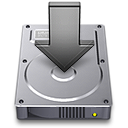Free (Libre) Open Source Software (FOSS)
 This software that can be classified as both free software and open-source software.
That is, anyone is freely licensed to use, copy, study, and change the software in any way,
and the source code is openly shared so that people are encouraged to voluntarily improve the design of the software.
This is in contrast to proprietary software,
where the software is under restrictive copyright licensing and the source code is usually hidden from the users.
This software that can be classified as both free software and open-source software.
That is, anyone is freely licensed to use, copy, study, and change the software in any way,
and the source code is openly shared so that people are encouraged to voluntarily improve the design of the software.
This is in contrast to proprietary software,
where the software is under restrictive copyright licensing and the source code is usually hidden from the users.
FOSS maintains the software user's civil liberty rights (see the Four Essential Freedoms, below). Other benefits of using FOSS can include decreased software costs, increased security and stability (especially in regard to malware), protecting privacy, education, and giving users more control over their own hardware.
Free and open-source operating systems such as Linux and descendants of BSD are widely utilized today, powering millions of servers, desktops, smartphones (e.g., Android), and other devices. Free-software licenses and open-source licenses are used by many software packages. The free-software movement and the open-source software movement are online social movements behind widespread production and adoption of FOSS.
Software should be free as in Beer, Freedom, Speech, and "Virus Free". Above all it must respect your freedom and privacy. You should be free to use it on all your devices, modify it, and share it with others in your community.
Free software is distributed under terms of General Public License v3 and later. In a nutshell, this means:
- You are free to use it for any purpose.
- You are free to distribute it.
- You can study how it works and change it.
- You can distribute changed versions of it.
Free open source software (FOSS) can be defined as computer software for which the human-readable source code is made available under a copyright license (GNU GPL or an arrangement such as the public domain) that meets the Free Open Source Definition. This permits users to use, change, or improve the software, and to redistribute it in modified or unmodified form. It is very often developed in a public, collaborative manner.
See gnu.org for details.